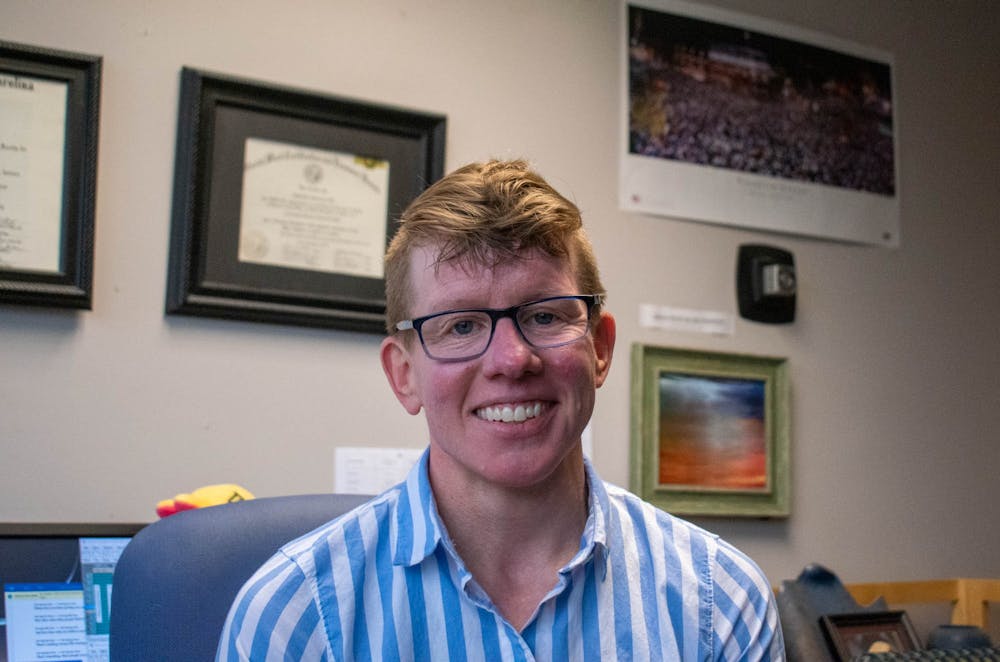Nina Fisher, a senior psychology major, said that despite using mental health resources through a telehealth therapy app, for several weeks following the Aug. 28 campus shooting and the Sept. 13 gun threat at Alpine Bagel, her mental health took a dip and the sense of security she had on campus was gone.
"I remember telling my friends. I was like, 'I'm really, really, really bothered by this,'" Fisher said. "I was not sleeping."
Throughout 2023, the University expanded its well-being programs and parts of the campus community provided additional support. But the aftermath of gun violence on campus exposed some gaps in mental health support for impacted students and faculty.
During the spring semester, Hinton-James Residence Hall started offering WellBeing coaching to residents in a collaboration with Carolina Housing and the School of Social Work. The two coaches, both master’s students in the social work school, were added to bridge the gap between the support that resident advisors are able to provide and more formal counseling, such as UNC's Counseling and Psychological Services.
At several points this year, CAPS implemented embedded counselors at various schools, including the Hussman School of Journalism and Media, the Eshelman School of Pharmacy, the Gillings School of Global Public Health and the Adams School of Dentistry.
“Our embedded counselor [in the dental school] has just started in the past few weeks and is getting everything up and running there,” Avery Cook, director of CAPS, said. “So that program continues to expand.”
CAPS also re-introduced the Well Ride program at the beginning of the fall semester, which provides free Lyft rides for students living on campus who are attending off-campus therapy. The program, which first started in the spring of 2020, was put on pause by COVID-19.
“We’d love as many students as needed to take us up on that, so that's a huge thing that we'll still be running in the spring,” Cook said.
Fisher said she contacted CAPS through email in the spring of 2023 and never heard back. She said she didn’t go to CAPS walk-in hours when she was experiencing mental health setbacks in the spring semester because she heard “very few positive stories of CAPS through friends.”
Fisher also added that she thinks a lot of students became “self-resilient” in trying to find their own means of support.
Aiden Spelbring, a senior psychology major and president of the UNC chapter of Helping Give Away Psychological Science, said he thinks some campus mental health resources such as CAPS have an unfairly "bad" reputation.



